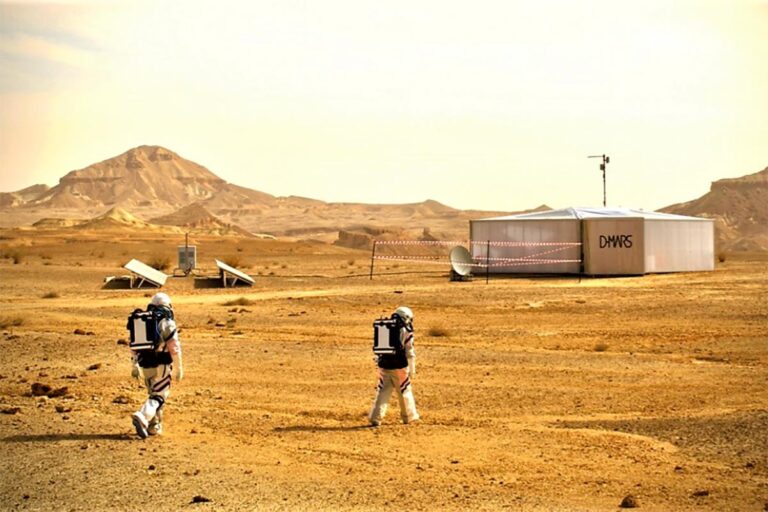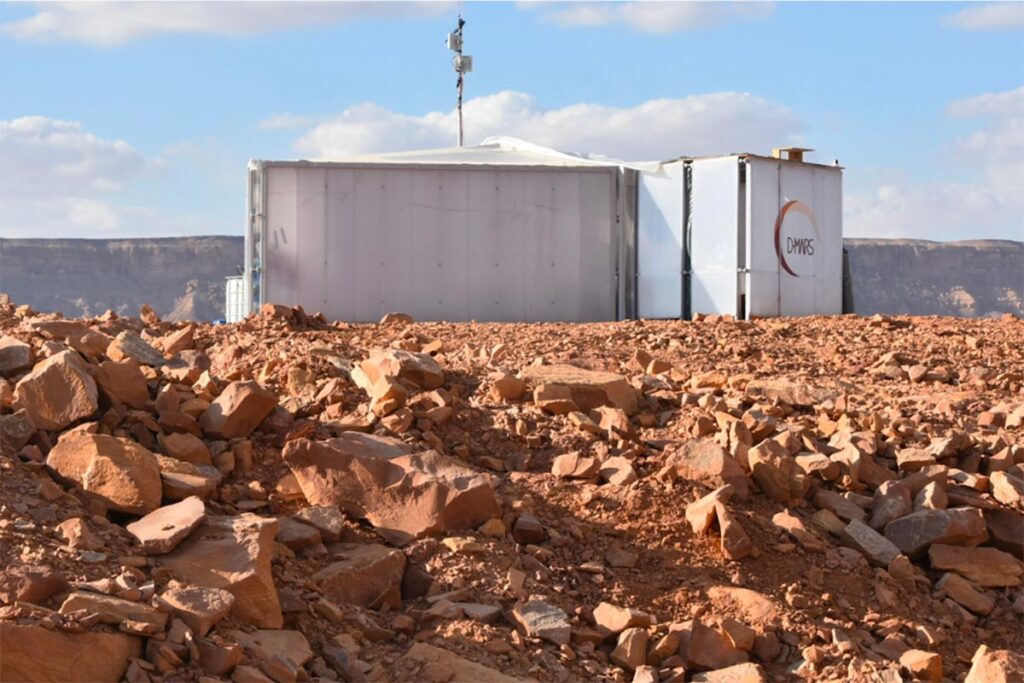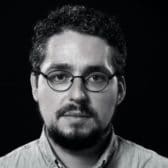
In the arid expanse of the Negev Desert in Israel, a group of analog astronauts took part in a mission that simulated life on planet Mars. Known as D-MARS – the Desert Mars Analog Ramon Station – this space analog research center was established in 2017 to help train future human explorers, test related hardware, and make space more accessible to the general public.
The unforgiving landscape of the Negev Desert is reminiscent of the harsh conditions one might encounter on the planet Mars. The arid climate, rugged terrain, and extreme temperatures make it a challenging environment for any living organism. The terrain is peppered with craters, boulders, and rocks, resembling the barren and lifeless surface of Mars.
The scorching sun beats down relentlessly, with temperatures soaring to over 40 degrees Celsius during the day and plummeting to near-freezing at night. Survival in these harsh conditions requires resilience, resourcefulness, and a deep understanding of the environment.
The geological features and aridity of the D-MARS mission site, located in Makhtesh Ramon, closely resembling those of Mars, make it the perfect location for simulating the challenges that future human explorers will face when visiting the Red Planet.

Since 2018, several missions have been carried out by six-member crews who perform experiments across a range of disciplines, including physics, soil studies, microbial studies, psychology, agriculture, water supply, and engineering. Their suits were even designed by the Israeli fashion designer, Alon Livne.
In the latest mission held in October 2021, six analog astronauts from Austria, Germany, Israel, the Netherlands, Portugal, and Spain participated in the mission, thanks to the mutual cooperation of the Austrian Space Forum and the Israel Space Agency.
During the mission, the “Ramonauts” lived in confined living quarters, ate food from capsules, and only left their living pods in full space gear, simulating the living conditions that would be required on Mars.
Aside from helping to plan for a future mission to the Red Planet, D-MARS also aims to boost public interest in space exploration, particularly among students.
Guy Ron, a nuclear physics professor from the Hebrew University in Jerusalem, who participated in the D-MARS mission, said, “D-MARS is half about the research, and the other half is about the outreach. A major part of this project is getting public interest and getting students interested in space.”
Originally Published Mar 5, 2023 07:10PM EST
